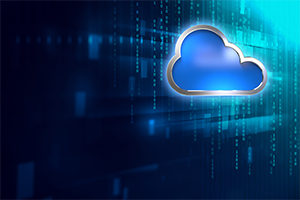Disaster Recovery
Cloud Infrastructure is Inherently Redundant, is Your Server Room?
 As we enter the US hurricane season each year, it is an appropriate time to review what you will do under disaster type circumstances. There are many things to consider when putting together a disaster plan, but one of the most basic IT requirements is power. Without power very few things can happen these days. The reality is that your power will most likely go off at some point during the year for something other than being affected by a hurricane. If you were to be without power for seven to ten days because of fire at a power substation would that impact your business? What about no power for 24 hours during your high season after a car strikes a telephone pole? What if lightning struck your building and took out your main power panel?
As we enter the US hurricane season each year, it is an appropriate time to review what you will do under disaster type circumstances. There are many things to consider when putting together a disaster plan, but one of the most basic IT requirements is power. Without power very few things can happen these days. The reality is that your power will most likely go off at some point during the year for something other than being affected by a hurricane. If you were to be without power for seven to ten days because of fire at a power substation would that impact your business? What about no power for 24 hours during your high season after a car strikes a telephone pole? What if lightning struck your building and took out your main power panel?
If you are unable to be without your systems for more than a few hours, then you need to ensure that your critical IT systems are housed in a physically secure, fully redundant environment in a data center or cloud. One reason that many companies are considering private and public cloud offerings is the levels of physical redundancy that are built into the underlying infrastructure.
Most hosted private clouds and all public clouds are architected with multiple layers of electrical providers, backed up by multiple generators. These main electrical feeds supply power to multiple layers of batteries that ultimately deliver said power to the infrastructure that then powers the cloud. What does this mean to you? It means that if you choose to move your critical servers to the cloud you will reap the benefits of a very robust and redundant infrastructure that would be very costly to build on-premises. Moving to the cloud will still require planning for a disaster; however, the cloud does provide redundancy options that may not be possible in your on-premises office environment.
If you need assistance with a cloud migration or need someone to help you create or review a Disaster Recovery plan please contact Thrive or call us at 866-205-2810.
